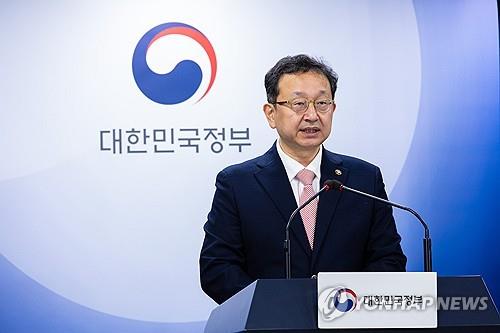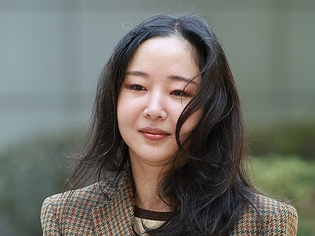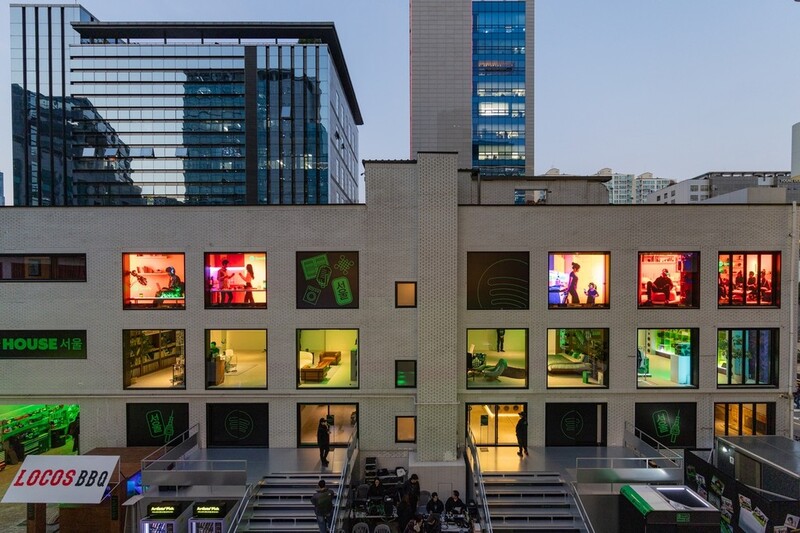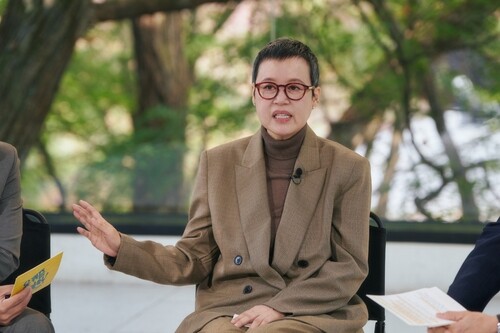 |
| ▲ Deputy Chairman Jeong Seung-yoon of the Anti-Corruption and Civil Rights Commission speaks in a press briefing at the government complex in Seoul on Sept. 12, 2023. (Yonhap) |
(LEAD) lawmakers-virtual assets
(LEAD) Anti-corruption agency to launch 90-day special probe into lawmakers' virtual assets
(ATTN: UPDATES with more info throughout)
By Kim Han-joo
SEOUL, Sept. 12 (Yonhap) -- The state anti-corruption agency said Tuesday it will look into virtual asset holdings of all lawmakers to see if any irregularities are involved, after suspicions arose earlier this year over a lawmaker's once-massive cryptocurrency assets.
The Anti-Corruption and Civil Rights Commission said it will conduct a 90-day inspection starting next Monday at the request of the National Assembly and a special team of around 30 investigators will be mobilized for the inspection.
Earlier this year, the ruling and opposition parties agreed to have the agency conduct the examination after suspicions of irregularities arose after Rep. Kim Nam-kuk, now an independent after leaving the main opposition Democratic Party, was found to have once held a substantial number of cryptocurrency coins.
"We will conduct a comprehensive investigation into the current state of acquisition, trading and sale of virtual assets by members of the 21st National Assembly," Deputy Chairman Jeong Seung-yoon said during a press briefing at the government complex in Seoul.
The scope of the inquiry will encompass the records of virtual assets held by all 298 sitting lawmakers from May 30, 2020, to May 31.
Kim's coin holdings sparked suspicions about the source of his funds and whether he had access to insider information. He also faced additional criticism after it was discovered that he had traded cryptocurrency coins multiple times while attending standing committee meetings.
Kim was referred to the parliamentary ethics committee, but a motion for his expulsion from the National Assembly was rejected last month.
The anti-corruption agency will closely examine the total assets and compare them with the amounts voluntarily declared by lawmakers to the parliamentary ethics committee, while looking into whether their coin-related activity violates the conflict of interest prevention law.
However, there are limitations in determining whether a lawmaker's activity runs the risk of violating the conflict of interest, Jeong said, because under the current law, lawmakers are required to rescue themselves in dealing with specific cases feared to be in conflict of interest, but they do not have to when dealing with bills intended for unspecified people.
In May, the National Assembly passed two bills mandating that lawmakers and high-level government officials declare their cryptocurrency and other virtual assets.
Under a revision to the Public Service Ethics Act, top government officials and lawmakers should report all of their virtual assets in an annual asset disclosure. So far, conventional assets, such as bonds, cash, gold and jewelry, have to be declared but not digital assets.
(END)
(C) Yonhap News Agency. All Rights Reserved























